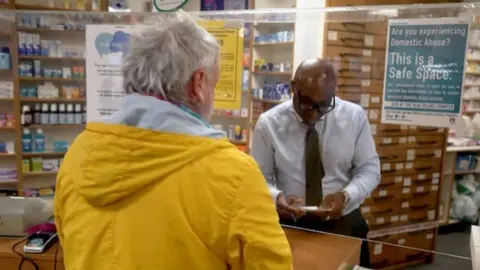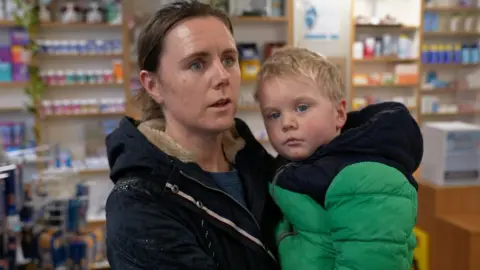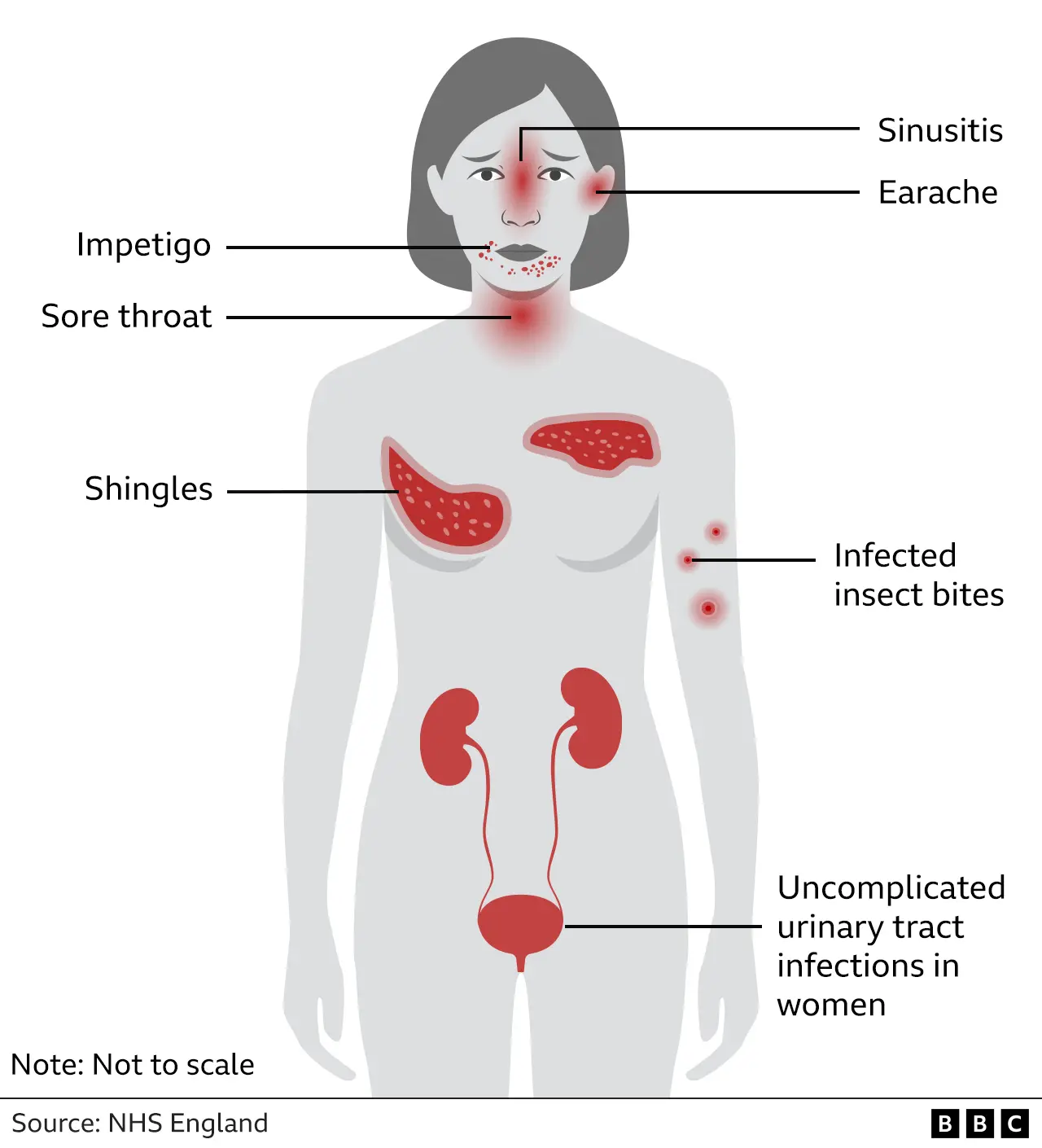Seven conditions that your local chemist can now treat
 BBC
BBCPeople with seven common ailments such as sore throat and earache can go into a chemist to be assessed, rather than making an appointment with their GP.
Under the Pharmacy First scheme, pharmacists in England can carry out consultations and issue antibiotics when appropriate.
The aim is to make it easier for people to get the help they need and free up millions of GP appointments.
Similar services already exist in Scotland, Wales and Northern Ireland.
Pharmacy groups have welcomed the move but there is concern over the number of chemists that have closed down, and funding for the scheme.
What can pharmacists supply medicines for now?
- sore throat
- earache
- sinusitis
- impetigo
- shingles
- infected insect bites
- uncomplicated urinary tract infections in women
Patients can access the new service by walking straight into a chemist. They can also be referred by NHS 111, urgent treatment centres, emergency departments or their GP. Those who are not registered with a GP can still access the service.
If one of the seven conditions is diagnosed, pharmacists can give medicines to patients rather than sending them back to their GP. Patients who need more specialist or follow-up care will be referred onwards.
Pharmacies already offer advice on medicines - when to take them, information on side effects and how to dispose of them - and have always been somewhere patients can go for advice on symptoms.
You can also get emergency contraception and blood pressure checks at most pharmacies in England. Some offer advice on how to stop smoking, how to lose weight as well as screening and treatment for chlamydia, a common sexually-transmitted infection.
What happens at a consultation?
The pharmacist will ask about symptoms and possibly about any previous medical issues. They may ask for consent to check the patient's health record if they can access it.
For some conditions, the pharmacist may perform an examination - for example of a patient's ear.
This allows them to recommend the best course of action for each patient, which could include a treatment bought over the counter such as a cream or ointment, a restricted set of prescription-only medicines or advice that the issue will go away on its own.
The consultation will be noted and shared with GPs to add to the patient's record.
Will more antibiotics be given out?
There is a strict protocol in place for providing medicines for each of the seven conditions, says Tase Oputu, who chairs the Royal Pharmaceutical Society (RPS) in England.
That includes giving information, advice and symptom relief before supplying antibiotics, if needed.
Antibiotics are used to treat or prevent bacterial infections, but do not work against viruses such as colds and flu.
Overuse of them in the past has meant they are becoming less effective against serious infections - known as antimicrobial resistance.
NHS England said the new service would be "continually" scrutinised in case there was any effect on that issue.
In Scotland, Wales and Northern Ireland, where the service is already running, the RPS said there was no evidence of an increase in levels of antibiotics supplied.
'More choice'
More than 90% of community chemists had registered to deliver the new service, NHS England said.
They have been paid £2,000 each and will receive £15 per consultation plus £1,000 a month if they see a set minimum number of patients.
NHS England's chief executive Amanda Pritchard called it "great news for patients".
"GPs are already treating millions more people every month than before the pandemic - but with an ageing population and growing demand, we know the NHS needs to give people more choice and make accessing care as easy as possible," she said.
The RPS called it a "leap forward" in patient care.
'Easier than staying on hold to GP'

Ade Williams, who trialled the scheme at Bedminster Pharmacy, in Bristol, told BBC News: "One of the frustrations you have as a pharmacist is that you have patients coming in and then you want to help them - but then you are then not able to. It's a really big deal for us.
"You feel a greater sense of satisfaction and it's lovely when the patient comes back and says, 'I am better now - that worked'."
Ali McKerrow, whose young son was supplied with an impetigo cream at the pharmacy, says the scheme will help working parents.
"It can be really challenging getting a GP appointment," she said.
"I am about to do the school run and just popped in here on the way - that's infinitely easier than staying on the phone on hold."
Nearly half the pharmacies in England have also recently started prescribing the oral contraceptive pill.
They will also increase the number of blood pressure checks.

But there are concerns about pharmacy closures. Last year, BBC News analysis showed the number of chemists in England had fallen to its lowest level since 2015.
And the Association of Independent Multiple Pharmacies has warned community pharmacies in England are "severely underfunded".
Chief executive Dr Leyla Hannbeck welcomed the scheme but said that without greater funding, "more pharmacies will shut their doors for good and more workload will be transferred to remaining pharmacies".
NHS England said £645m was being invested over two years in expanding services offered by community pharmacies.
Why did Scotland, Wales and Northern Ireland move ahead of England?
The reality is that pharmacists in England have been pushing for a while for a scheme of this nature and the government at Westminster has not moved as quickly as they would have liked.
Scotland's Pharmacy First Plus scheme was seen as the model for England. Launched in 2020, the service is available at fewer than a third of Scottish pharmacies but the aim is to make it accessible in all communities.
Northern Ireland's service dates back to before the Scottish launch, though the list of conditions which can be treated is more limited.
Wales has a Common Ailments scheme which does not cover the same range of cases as England and Scotland.

Are you struggling to get a GP appointment? Get in touch.
- Email [email protected]
- WhatsApp: +44 7756 165803
- Tweet: @BBC_HaveYourSay
- Upload your pictures or video
- Please read our terms & conditions and privacy policy

